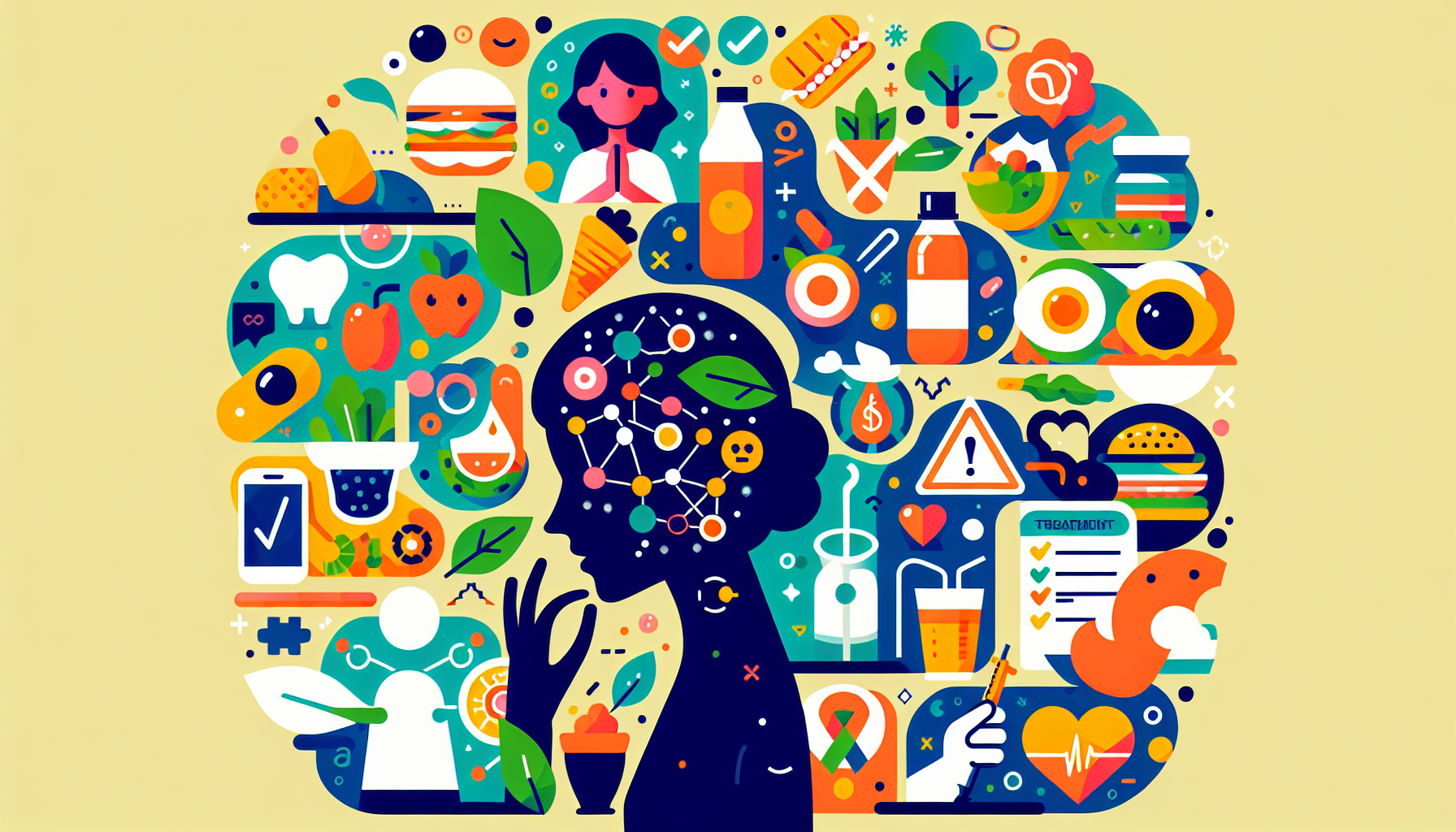Food addiction is a growing concern, with increasing evidence suggesting that certain foods can trigger the same reward and pleasure centers in the brain as addictive drugs. If you find yourself constantly craving and overeating certain foods, even when you're not hungry, you may be struggling with food addiction.
What Causes Food Addiction?
Food addiction is believed to be caused by the consumption of highly palatable foods that are rich in sugar, fat, and salt. These foods can activate the brain's reward pathway, releasing feel-good chemicals like dopamine. Over time, you may develop a tolerance to these foods, requiring more and more to achieve the same level of satisfaction.
Signs and Symptoms of Food Addiction
If you're concerned that you may have a food addiction, ask yourself the following questions:
Do you continue eating certain foods even when you're no longer hungry?
Do you eat until you feel uncomfortably full or ill?
Do you worry about not having access to certain foods or feel anxious about cutting down on them?
Do you go out of your way to obtain specific foods when they're not readily available?
Does your eating habits interfere with work, family, or social activities?
Do you experience negative emotions like depression, anxiety, or guilt after eating certain foods?
Food Addiction vs. Binge Eating Disorder
While food addiction and binge eating disorder (BED) share some similarities, they are distinct conditions. BED involves frequently consuming large amounts of food in a short period, often accompanied by feelings of shame or guilt. BED may be triggered by restrictive dieting, using food as a coping mechanism, and other emotional factors.
Treatment Options for Food Addiction
If you believe you may have a food addiction, it's essential to seek help from a qualified professional. A nutritionist, psychologist, or doctor who specializes in food addiction can help you break the cycle of compulsive overeating and develop healthier eating habits. Treatment options may include:
Support groups like Food Addicts in Recovery Anonymous or Food Addicts Anonymous
Cognitive-behavioral therapy to address underlying emotional triggers
Nutritional counseling to develop a balanced, sustainable eating plan
Medications to manage co-occurring mental health conditions like depression or anxiety
Remember, recovery from food addiction is possible with the right support and resources. If you're struggling with compulsive overeating, don't hesitate to reach out for help. With the guidance of a qualified professional, you can regain control of your eating habits and improve your overall health and well-being.
For more information on food addiction and available treatment options, visit the National Eating Disorders Association website.
The Bottom Line
Breaking the cycle requires complete avoidance of trigger foods rather than portion control, as the brain's reward pathways need time to reset without stimulation from highly palatable processed foods. Professional support through therapy and nutritional counseling significantly improves long-term success rates. If you're struggling with compulsive eating patterns or can't stop thinking about certain foods, Doctronic can connect you with specialists who understand this complex condition.


